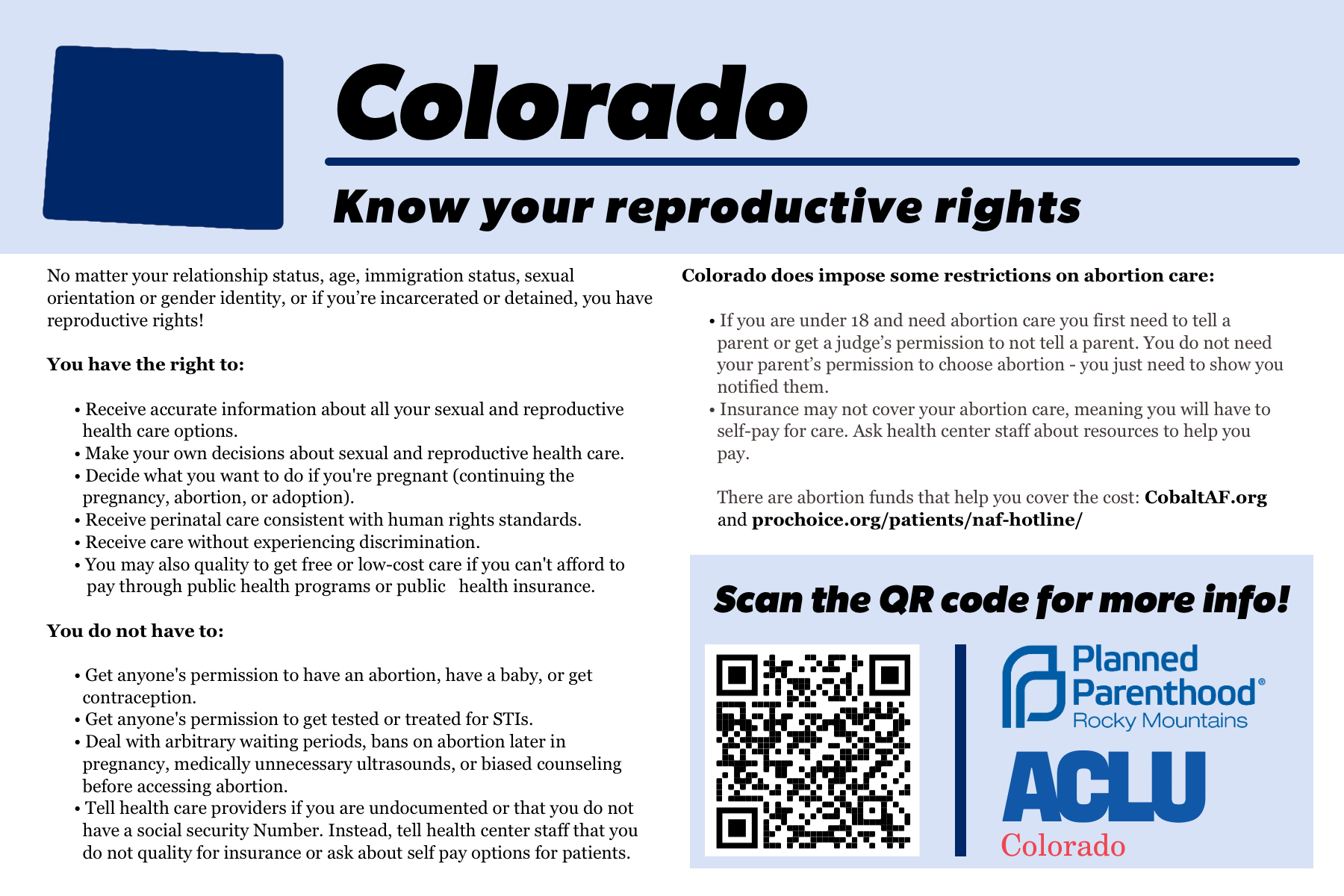Thanks to voters, abortion rights advocates and progressive lawmakers, Colorado does not have some of the most common abortion restrictions seen in other states. We do not have mandatory waiting periods, ultrasound requirements, arbitrary gestational limits, or restrictions on what types of safe abortion procedures medical providers can offer patients. Colorado does, however, have a few abortion restrictions that prevent many from accessing care — especially young people, Coloradans with public health insurance coverage, and our neighbors held in jails and prisons.
Download this card and keep it handy to reference your reproductive rights
Stay Informed
Sign up to be the first to hear about how to take action.
By completing this form, I agree to receive occasional emails per the terms of the ACLU’s privacy statement.
By completing this form, I agree to receive occasional emails per the terms of the ACLU’s privacy statement.

